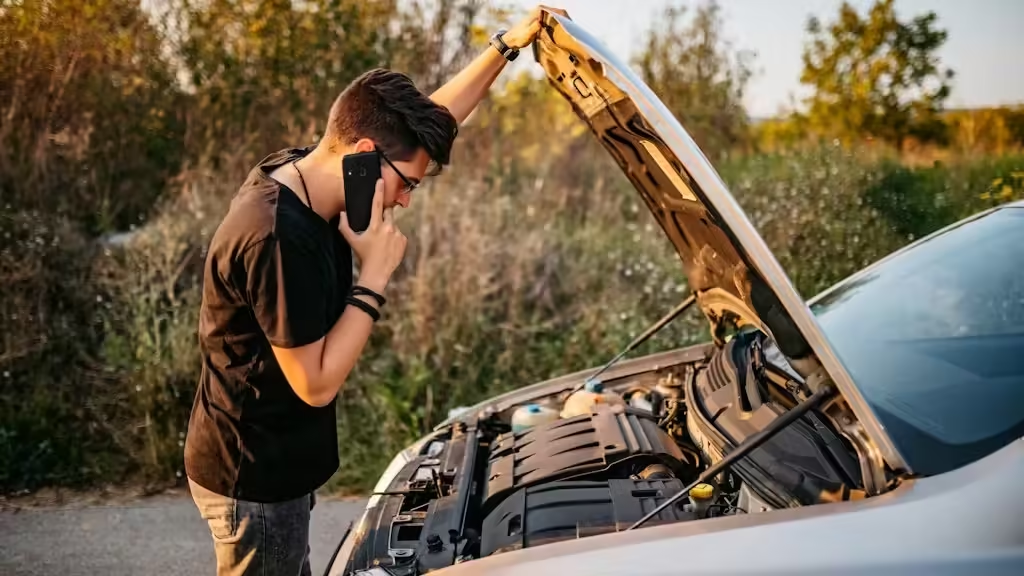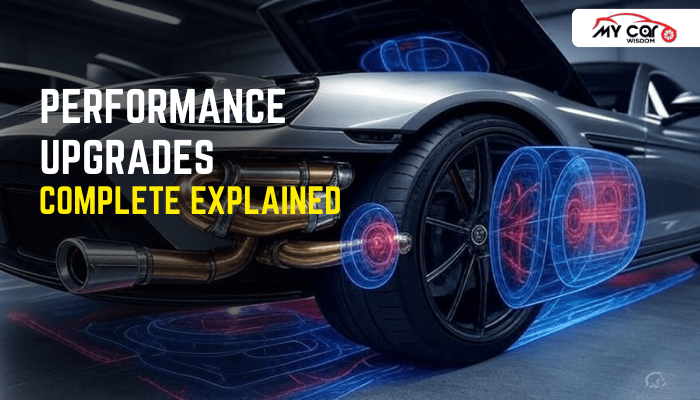Owning a car is both a privilege and a responsibility. While cars provide comfort, convenience, and mobility, they also demand car maintenance to avoid common issues that can arise over time. Regular car maintenance and attention to detail can help you keep your vehicle in good condition. However, some problems are more common than others, and knowing how to handle them is essential to avoid breakdowns and costly repairs.
In this article, we will explore the top 7 most frequent car problems and how to manage them, focusing on the Indian context where road conditions and climate can significantly affect vehicle performance.
1. Flat or punctured tires
One of the most common car problems, especially in India, is a flat or punctured tire. Indian roads can be uneven and filled with potholes, which increases the likelihood of tire damage. Sharp objects like nails, glass, or even stones can pierce the tires, leading to a flat.
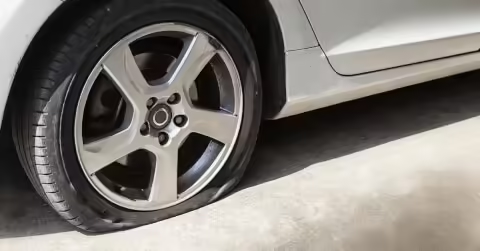
How to Handle It:
- Prevention: Ensure your tires are properly inflated and regularly check them for any wear and tear. Driving carefully over rough surfaces and avoiding sharp objects can help.
- Immediate Action: If you experience a puncture, the first step is to stop the car safely. Most cars come with a spare tire, jack, and a tire iron. Use these tools to replace the damaged tire with the spare one.
- Long-term Solution: Regularly inspect your tires and replace them if they are worn out. Using tubeless tires can also help, as they tend to deflate more slowly, giving you enough time to reach a repair shop.
Maintaining your tires is an essential part of car maintenance, as healthy tires reduce the risk of accidents and improve fuel efficiency.
2. Battery Issues
Car batteries often run into trouble, especially during extreme weather conditions in India. A dead battery is one of the leading causes of cars failing to start. Batteries can drain due to various reasons, such as leaving the lights on, not driving the car for extended periods, or simply an old battery that needs replacement.

How to Handle It:
- Prevention: Check your battery terminals for corrosion and clean them if necessary. Keep an eye on the battery’s health using a voltage meter or through regular car maintenance. Avoid leaving the lights or other electrical systems on when the engine is off.
- Immediate Action: If your battery dies, the easiest way to jumpstart it is by using jumper cables. Connect the cables to a working battery (either from another car or a portable charger) and start your car.
- Long-term Solution: Car batteries typically last 3-5 years. If your battery is near the end of its life, it’s wise to replace it before it fails completely. Regular battery car maintenance, such as cleaning terminals and checking electrolyte levels, can also prolong its life.
3. Engine Overheating
Indian summers can be harsh, and one of the most common problems during this season is engine overheating. This occurs when the car’s cooling system fails to regulate the engine’s temperature. Overheating can damage engine components and leave you stranded on the road.

How to Handle It:
- Prevention: Regularly check the coolant level in your car and ensure that the radiator is functioning properly. Keep an eye on the temperature gauge, and if it starts creeping into the red zone, it’s a sign that the engine is overheating.
- Immediate Action: If your engine overheats, stop the car and turn off the engine immediately. Allow it to cool down before checking the coolant level. Do not open the radiator cap while the engine is hot, as it can cause burns.
- Long-term Solution: Ensure that your car’s cooling system is regularly maintained. Regular flushing and refilling of coolant, along with checks for leaks in the radiator, are essential parts of car maintenance to prevent overheating issues.
4. Brake Problems
Your car’s braking system is critical for safety, and any issues with it can lead to dangerous situations. Brake problems can include squeaking noises, reduced braking power, or even brake failure. In India, where sudden stops are common due to unpredictable traffic, functional brakes are crucial.
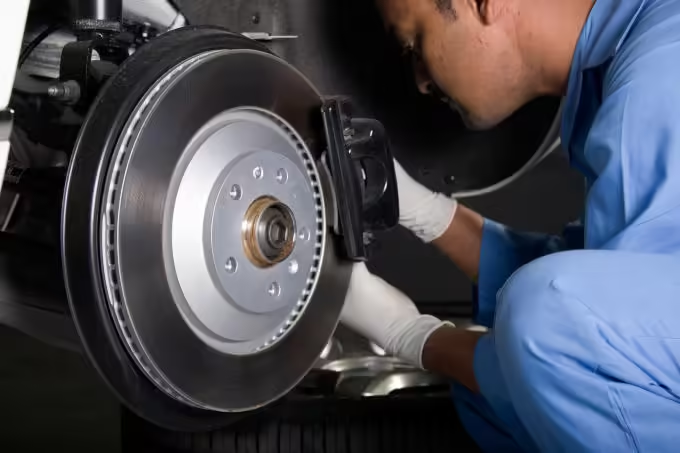
How to Handle It:
- Prevention: Regularly check your brake pads and discs for wear. Brake fluid should also be topped up to ensure smooth braking. Squeaking sounds can indicate worn-out brake pads, so it’s important to replace them as needed.
- Immediate Action: If you notice reduced braking efficiency or hear strange noises when applying the brakes, drive cautiously to the nearest mechanic. If the brakes fail completely, downshift to a lower gear and use the handbrake to slow down the car safely.
- Long-term Solution: Regular brake car maintenance is essential. Changing brake pads, flushing the brake fluid, and ensuring the brake system is in good condition will keep your car safe.
5. Electrical System Issues
Cars today are loaded with electronics, from power windows and audio systems to GPS and air conditioning. Electrical issues can range from minor problems like a blown fuse to major ones like a malfunctioning alternator or a failing starter motor. These problems can be frustrating and often require immediate attention.
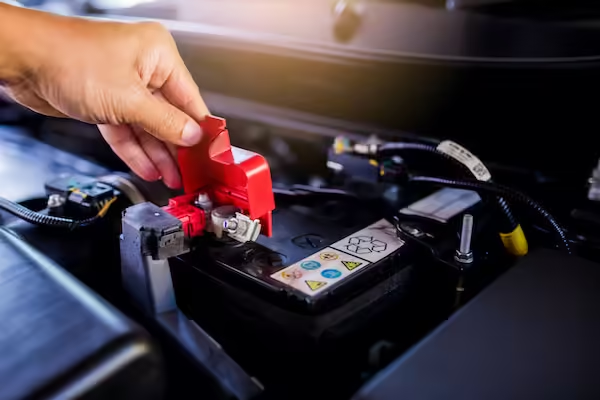
How to Handle It:
- Prevention: Regularly inspect the car’s electrical components. Ensure that the battery connections are secure and that there are no loose wires. Use your car’s electrical systems wisely to avoid overloading them.
- Immediate Action: If a fuse blows, replacing it with a new one is often the quickest solution. If the problem is with the starter motor or alternator, you will need to have it checked by a professional mechanic.
- Long-term Solution: Keep the electrical system in good shape by having it checked during routine car maintenance. Modern cars often come with diagnostic tools that can help detect electrical issues before they become serious.
6. Clutch problems
Manual transmission cars are common in India, and clutch issues are a frequent problem, especially in heavy traffic. Clutch problems manifest as difficulty in shifting gears, a slipping clutch, or a heavy clutch pedal. These issues can make driving uncomfortable and lead to transmission damage.

How to Handle It:
- Prevention: Avoid riding the clutch (keeping your foot on the clutch pedal when not changing gears), as this leads to premature wear. Ensure that the clutch fluid is topped up and check for any leaks.
- Immediate Action: If your clutch starts slipping or if you face difficulty in changing gears, it’s important to have it looked at immediately. Continuing to drive with a faulty clutch can damage the transmission.
- Long-term Solution: Regular clutch system car maintenance and timely replacement of worn-out components will prevent long-term damage. Proper driving habits, such as not overusing the clutch in traffic, can also extend its lifespan.
7. Suspension Problems
India’s roads, especially in rural areas, can be tough on a car’s suspension. The suspension system helps absorb shocks from uneven roads and keeps the car stable. Over time, components like shock absorbers, struts, and control arms can wear out, leading to a bumpy and uncomfortable ride.
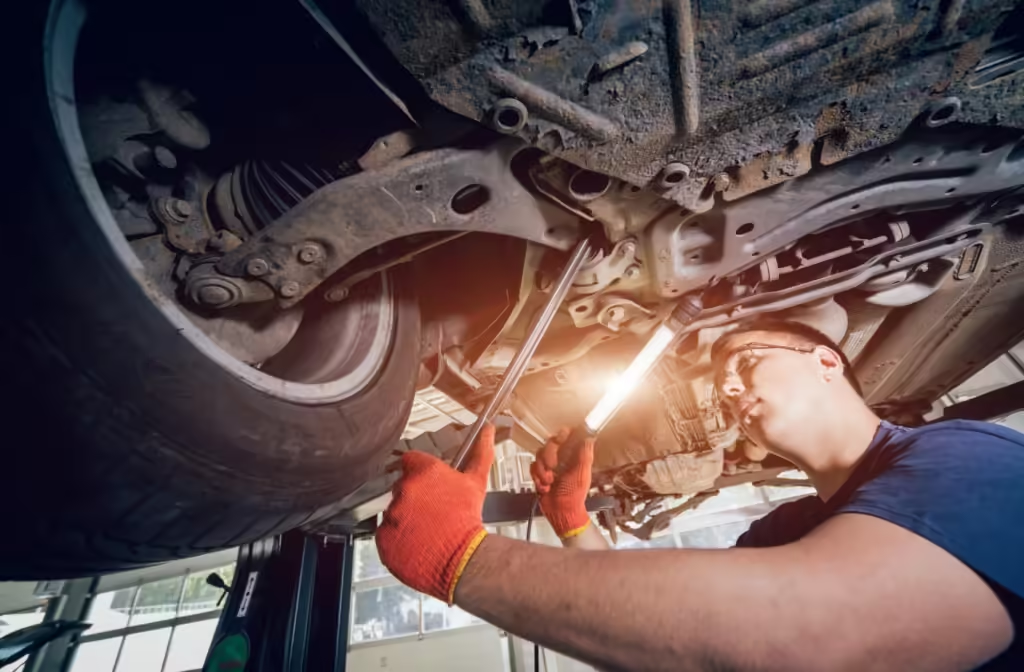
How to Handle It:
- Prevention: Drive carefully on bad roads and avoid potholes whenever possible. Regularly check your car’s suspension system during servicing to ensure it’s in good condition.
- Immediate Action: If you notice your car bouncing excessively or hear strange noises from the suspension, it’s time to get it checked. Continuing to drive with a damaged suspension can lead to further damage and unsafe driving conditions.
- Long-term Solution: Replacing worn-out shock absorbers or struts and keeping the suspension system properly maintained through regular car maintenance will ensure a smooth and comfortable ride.
General Tips for Car Maintenance
In addition to handling specific car problems, adopting a proactive approach to car maintenance can help you avoid most issues. Here are some general tips to keep your car in top shape:
- Regular Servicing: Stick to your car’s service schedule. This ensures that your car’s engine, brakes, and other components are inspected and maintained regularly.
- Check Fluids: Always ensure that your car has the right levels of essential fluids, including engine oil, brake fluid, coolant, and transmission fluid.
- Drive Smart: Avoid aggressive driving, sudden braking, and speeding over bumps or potholes. These habits can take a toll on your car’s components.
- Monitor Warning Lights: Modern cars come with various sensors that monitor the health of different systems. Pay attention to dashboard warning lights, and address any issues they indicate promptly.
Conclusion
Owning a car comes with the responsibility of car maintenance. While common car problems such as flat tires, battery issues, and brake problems can be stressful, knowing how to handle them can save you time and money. Regular car maintenance, careful driving, and prompt attention to minor issues can prevent them from becoming major headaches. By following the tips and solutions discussed in this article, you can ensure that your car remains reliable and safe for years to come.
Ready to Make the Best Decision for Your Next Car?
At My Car Wisdom, we’re here to help you navigate the complexities of choosing the perfect vehicle. Whether you’re a first-time buyer or a seasoned car enthusiast, our in-depth reviews, expert advice, and practical tips will empower you to make informed decisions.
Don’t leave your choice to chance—trust our expertise to guide you in finding a car that fits your lifestyle, budget, and needs. Explore our latest reviews, compare the top models, and stay updated with the latest trends in the automotive world.
Raja Yadav, the content writer at My Car Wisdom, brings a unique voice and style to our blog. With a knack for storytelling and a keen eye for detail, Raja ensures that every piece of content is informative, engaging, and easy to understand. His focus is on delivering high-quality articles that cater to both novice car owners and seasoned automotive enthusiasts.

